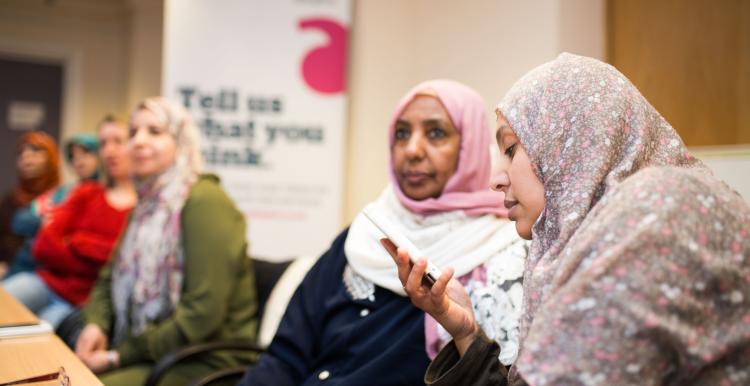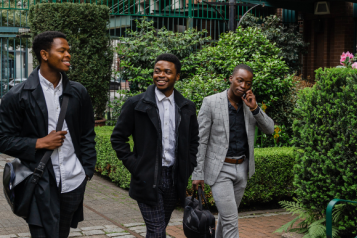Tier 3: very high alert

Meeting indoors
You must not meet socially indoors with anybody you do not:
- live with
- have a support bubble with
Unless a legal exemption applies.
‘Indoors’ means any indoor setting, including:
- private homes
- other indoor venues such as pubs and restaurants
Meeting outdoors
You must not meet socially (in a private garden or at most outdoor public venues), with anybody you do not:
- live with
- have a support bubble with
Unless a legal exemption applies.
However, you can see friends and family you do not live with (or do not have a support bubble with) in some outdoor public places, in a group of up to 6. This limit of 6 includes children of any age.
These outdoor public places include:
- parks, beaches, countryside accessible to the public, forests
- public gardens (whether or not you pay to enter them)
- allotments
- the grounds of a heritage site
- outdoor sports courts and facilities
- playgrounds
You can continue to meet in a group larger than 6 if you are all from the same household or support bubble, or another legal exemption applies.
Support and childcare bubbles
There is separate guidance for support bubbles and childcare bubbles across all tiers. Support bubbles have been expanded. From 2 December you can form a support bubble with another household if you:
- are the only adult in your household (any other members of the household having been under 18 on 12 June 2020), or are an under 18 year old living alone
- live with someone with a disability who requires continuous care and there is no other adult living in the household
- live with child under 1, or who was under 1 on 2 December 2020
- live with a child under 5, or who was under 5 on 2 December 2020, with a disability.
Meeting in larger groups
There are exceptions where people can continue to gather indoors or in private gardens, or in groups larger than 6, in outdoor public places:
- as part of a single household or support bubble
- in a childcare bubble (for the purposes of childcare only)
- for work, or providing voluntary or charitable services, including in other people’s homes (read guidance on working safely in other people’s homes)
- for registered childcare, education or training – meaning education related to a formal curriculum or training that relates to work or obtaining work
- for supervised activities provided for children and those who were under 18 on 31 August 2020, including wraparound care (before and after-school childcare), children’s groups, activities for under-18s, and children’s playgroups
- for parent and toddler groups – up to a maximum of 15 people. Under-5s do not count towards this limit. These cannot take place in private dwellings.
- for arrangements where children do not live in the same household as both their parents or guardians
- to allow contact between birth parents and children in care, as well as between siblings in care
- for prospective adopting parents to meet a child or children who may be placed with them
- support groups of up to 15 participants – formally organised groups to provide mutual aid, therapy or any other form of support, where it is necessary for these to take place in person. These cannot take place in private dwellings. Under-5s do not count towards the 15 person limit for support groups
- for birth partners
- to provide emergency assistance, and to avoid injury or illness, or to escape a risk of harm
- to see someone who is dying
- to fulfill a legal obligation, such as attending court or jury service
- for gatherings within criminal justice accommodation or immigration detention centers
- to provide care or assistance to someone vulnerable, or to provide respite for a carer
- for a wedding or equivalent ceremony where the organiser has carried out a risk assessment and taken all reasonable measures. Receptions are not permitted to limit the risk of transmission of the virus. These cannot take place in private dwellings, except for weddings that take place in exceptional circumstances where one of the parties is seriously ill and not expected to recover.
- for funerals – up to a maximum of 30 people – and for commemorative events, such as wakes or stone settings – up to 15 people. These cannot take place in private dwellings
- to visit someone at home who is dying, or to visit someone receiving treatment in a hospital, hospice or care home, or to accompany a family member or friend to a medical appointment
- for elite sportspeople (and their support teams if necessary, or parents/guardians if they are under 18) to compete and train
- for organised outdoor sport and physical activity and organised sports for disabled people
- to facilitate a house move
Where a group includes someone covered by an exception (for example, someone who is working or volunteering), they are not generally counted as part of the gatherings limit. This means, for example, a trades person can go into a household without breaching the limit, if they are there for work, and the officiant at a wedding would not count towards the limit.
Video explanation of the tier system for adults with learning disabilities
If you break the rules
The police can take action against you if you meet in larger groups. This includes breaking up illegal gatherings and issuing fines (fixed penalty notices).
You can be given a fixed penalty notice of £200 for the first offence, doubling for further offences up to a maximum of £6,400. If you hold, or are involved in holding, an illegal gathering of over 30 people, the police can issue fines of £10,000.


